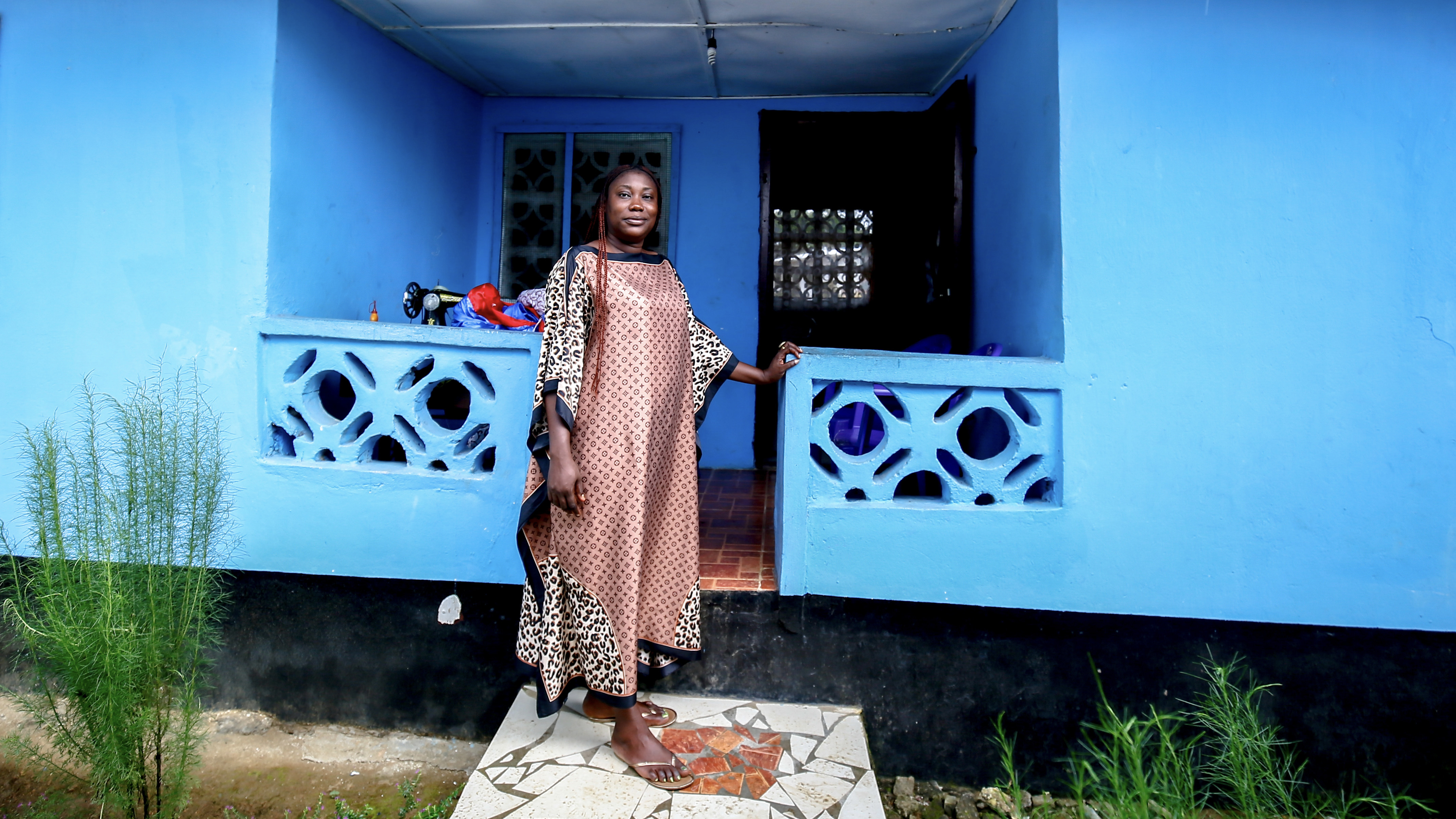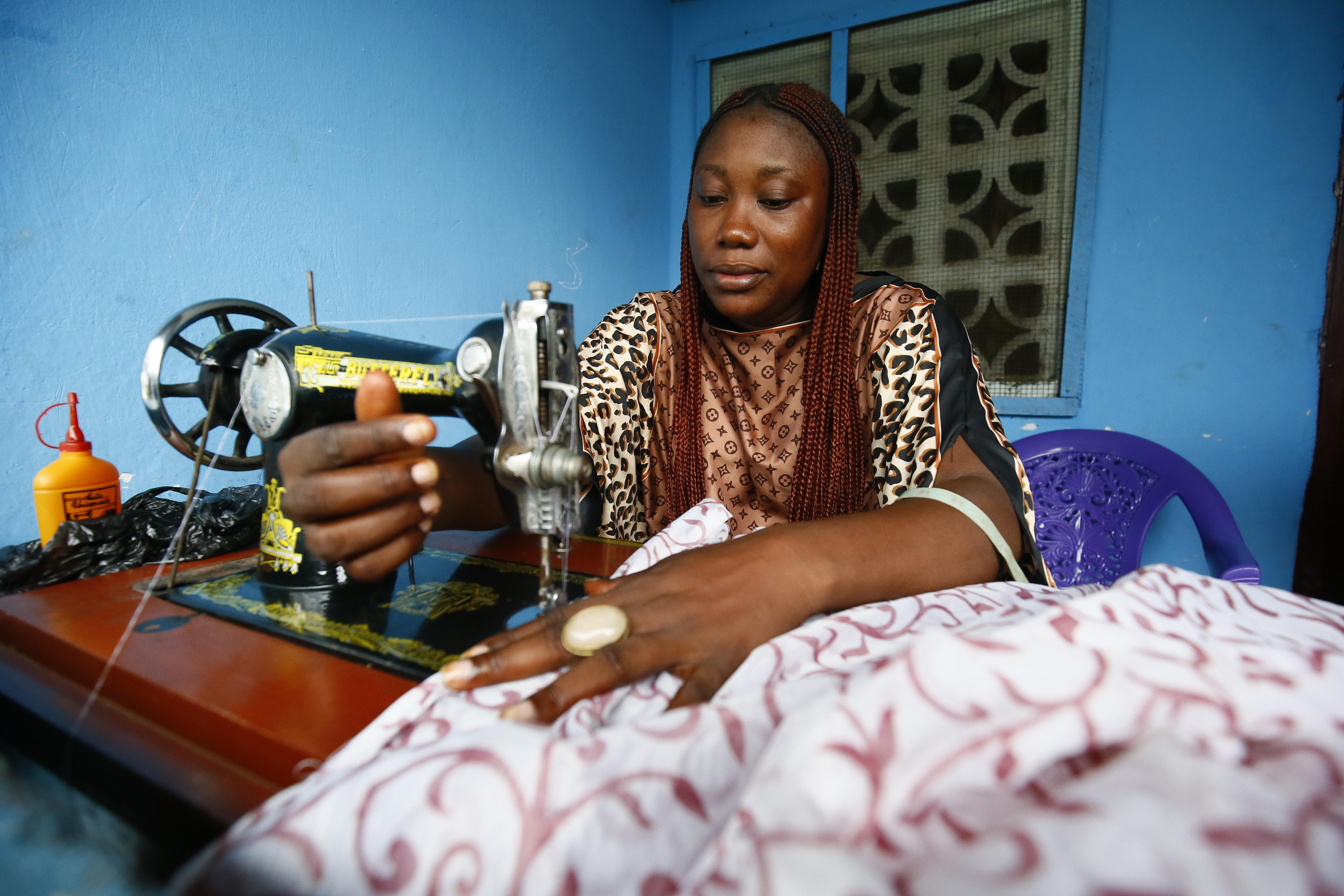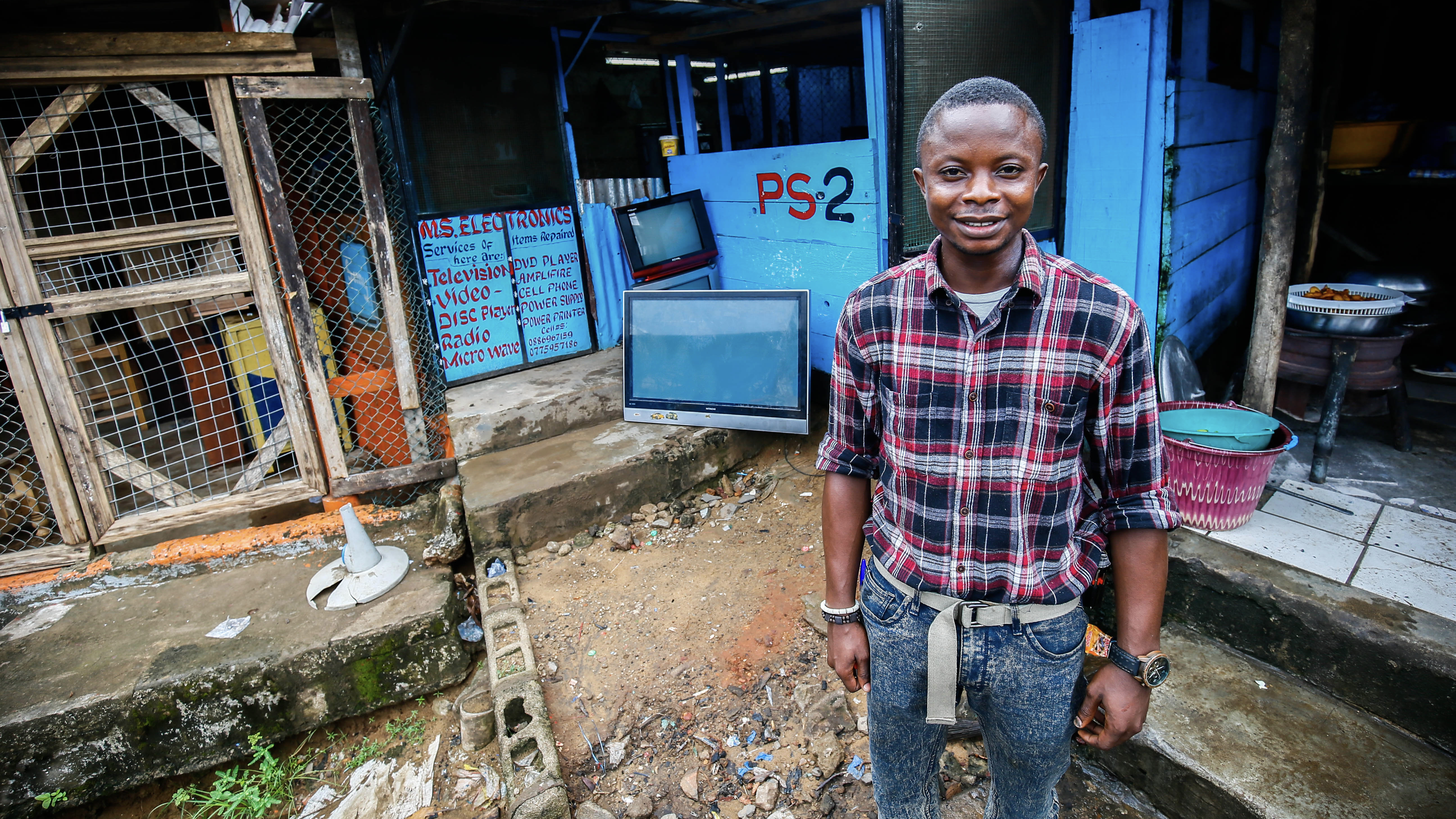

A new beginning after the war, reintegration for Liberian returnees
25 November 2017 Daniel CHANG
Liberia was affected by a devastating civil war between 1989 and 2003. A quarter of a million people lost their lives. Three quarters of a million people lost their homes and became refugees as they fled from the fighting.
Many of the persons displaced by the war remained refugees for a long time. When the conflict ended some of them voluntarily returned to Liberia. Then, in July 2012, a cessation clause entered into force for remaining refugees from Liberia on the basis that the peace and stability in the country was restored.
This meant that those who had fled Liberia would no longer be regarded as refugees and, unless they met meet the necessary legal requirements of that country for asylum, would have to return, the majority of the remaining refugees did.


Georgia Gage was one of them. She and her three children returned to Monrovia in 2013, after 10 years as refugees in Nigeria. “It was a bold step to take. Living in country that is not yours is very difficult. For me it was necessary to come home,” recalls Gage.
In April 2013, UNIDO launched the Reintegration for Liberian Returnees through the Skills Training and Job Creation Programme.
With funding from the Government of Japan, in close cooperation with the Liberian Refugee Repatriation and Resettlement Commission (LRRRC) and the Liberian Returnee Network, UNIDO implemented entrepeneurship development and vocational skills training programmes to help returning refugees to reintegrate into their country of origin.
Gage was one of 300 returnees who successfully applied for vocational skills training.The programme offered 22 market-oriented specializations. She took the training for curtain-making, and learnt to use a sewing machine for the first time. She also learnt business-management skills.
“The training helped me improve the quality of my family life very much. I am forever grateful to UNIDO,” she says proudly. Before leaving Liberia she was a high school graduate. “I had no trade or career to count on. So, when I came back, with the help of UNIDO, I had something to sustain my family. I am truly grateful.”
Terrance Ballah, 30, returned to Liberia after years in Sierra Leone. He is one of nearly 700 people who had 120 hours of entrepreneurship development training.
“I received a certificate in auto-electricity, learned about fault-finding, repairing, replacement and maintenance. They also taught us about entrepreneurship, customer service, and how to be efficient while working,” he said.
Once he finished the training, Ballah was able to sustain himself and with his earnings he paid for a specialized course in electronic technics. Right after that he followed his entrepreneurial dream and, together with a friend, opened his own business.
“The training helped me improve my life. Before, I was dependent on my brothers and sisters, but now I became self-employed and I do everything for myself,” he added.

More than 1000 returnees successfully completed the training with hopes of being able to support their families and start a new life after the war. However, the Ebola virus epidemic in Liberia from 2014 to 2015 delayed their plans and only after the crisis passed could many find the so-longed livelihood.
A follow-up study on the role of UNIDO’s training on the economic integration of repatriated refugees in Liberia, published in 2017, shows a clear improvement in the employment and income status of the Liberians who decided to come back.
“With the diminishing of the external shock of the Ebola crisis in Liberia, the findings of this follow-up study better demonstrate the potential of vocational training programmes for the reintegration of repatriates in Liberia,” the report stated.
Ballah is married and has a child, he and his business partner can be found in their workshop every day, repairing different electronic devices.
Gage works from home, she makes curtains, pillows and bedsheets, and dreams about having her own shop where she can showcase her products and expand her business.
“I believe it was the right choice to come back home. I feel good about coming home. The opportunities I have now would never have been available in a foreign country as a refugee,” says Ballah.

